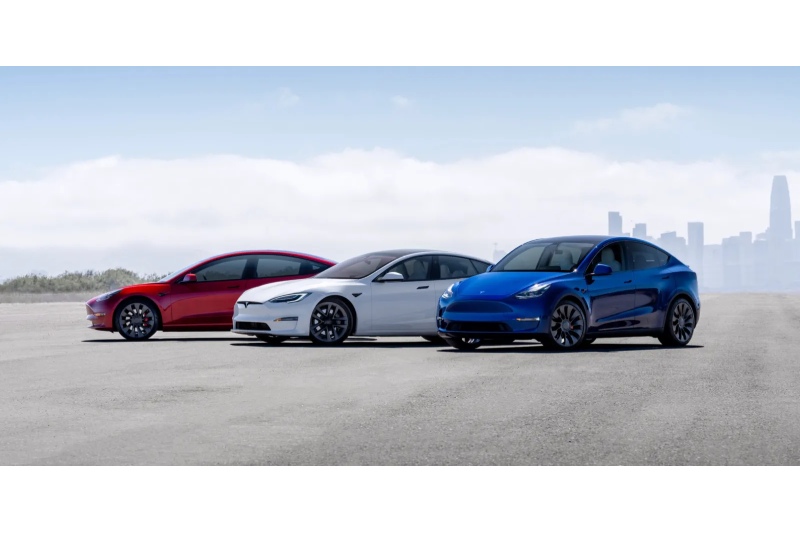Tesla, Ford, and Mercedes have the Least Troublesome EV Supply Networks

According to a recent survey of 18 major automakers, Ford, Mercedes-Benz, and Tesla are the top three companies for their efforts to remove carbon emissions, environmental impact, and human rights breaches from their supply chains. Particularly US companies improved their supply chains the most, with Tesla seeing the largest growth among all automakers.
Lead the Charge, a global alliance of preeminent climate, environmental, and human rights organizations, including Public Citizen, The Sunrise Project, and the Sierra Club, among others, created the rankings. With the intention of releasing an updated rating annually, the group began assessing car supply chains last year.
In general, automakers made significant strides toward improving the quality of their supply chains, particularly in the areas of steel decarbonization and human rights due diligence. The team also discovered proof that automakers around the world are benefiting from EU restrictions.
US automakers made the greatest strides; Ford topped the standings with a score of 42%, beating out Mercedes as the winner from the previous year. With its recent start of disclosing emissions from its supplier chain, Tesla achieved the biggest improvement in its ranking, moving up from ninth to third. The study does, however, highlight serious shortcomings in the manufacturers’ human rights policies, particularly with regard to Indigenous rights, where no advancements have been made—not even by high scores like Ford and Mercedes.
This year, Kia, Nissan, and Toyota were among the underperforming automakers. The organization criticized the firms for their lack of progress in switching to electric vehicles (EVs) and for disregarding Indigenous rights and supply chain emissions.
The committee comes to the conclusion that overall development in 2023 was “lackluster,” and that if the auto sector doesn’t make a more concerted effort to reduce carbon emissions and uphold human rights more firmly, it may miss its climate targets.
“Average scores overall were just 19 percent, and no company scored over 50 percent against the total number of indicators,” the report states. “Moreover, one third of the automakers evaluated still haven’t taken concrete action on steel and aluminum decarbonization, whilst average scores across the indicators on responsible transition mineral sourcing, Indigenous Peoples’ rights and workers’ rights have risen by just 2 percentage points, with 11 out of the 18 automakers continuing to score 0 percent on Indigenous Peoples rights.”
Certain manufacturers acknowledge that additional measures are required to reduce environmental damage while safeguarding laborers and Native Americans. Despite a significant deployment of new EVs and hybrids in the upcoming years, the global automotive sector is still “far off track” on decreasing greenhouse gas emissions in a way that can address climate change, according to a climate assessment released last year that was commissioned by Polestar and Rivian.